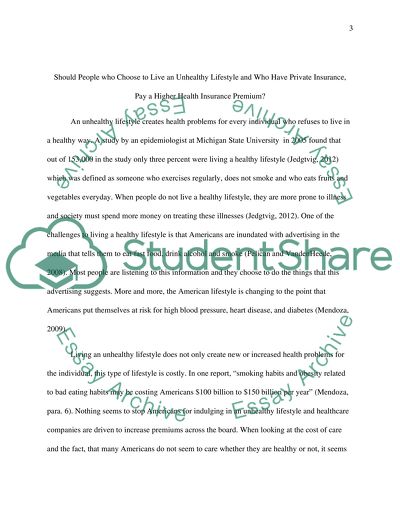Cite this document
(“Should people pay a higher health insurance premium Research Paper”, n.d.)
Retrieved from https://studentshare.org/health-sciences-medicine/1396180-should-people-who-choose-to-live-an-unhealthy-lifestyle-pay-a-higher-health-insurance-premium
Retrieved from https://studentshare.org/health-sciences-medicine/1396180-should-people-who-choose-to-live-an-unhealthy-lifestyle-pay-a-higher-health-insurance-premium
(Should People Pay a Higher Health Insurance Premium Research Paper)
https://studentshare.org/health-sciences-medicine/1396180-should-people-who-choose-to-live-an-unhealthy-lifestyle-pay-a-higher-health-insurance-premium.
https://studentshare.org/health-sciences-medicine/1396180-should-people-who-choose-to-live-an-unhealthy-lifestyle-pay-a-higher-health-insurance-premium.
“Should People Pay a Higher Health Insurance Premium Research Paper”, n.d. https://studentshare.org/health-sciences-medicine/1396180-should-people-who-choose-to-live-an-unhealthy-lifestyle-pay-a-higher-health-insurance-premium.


